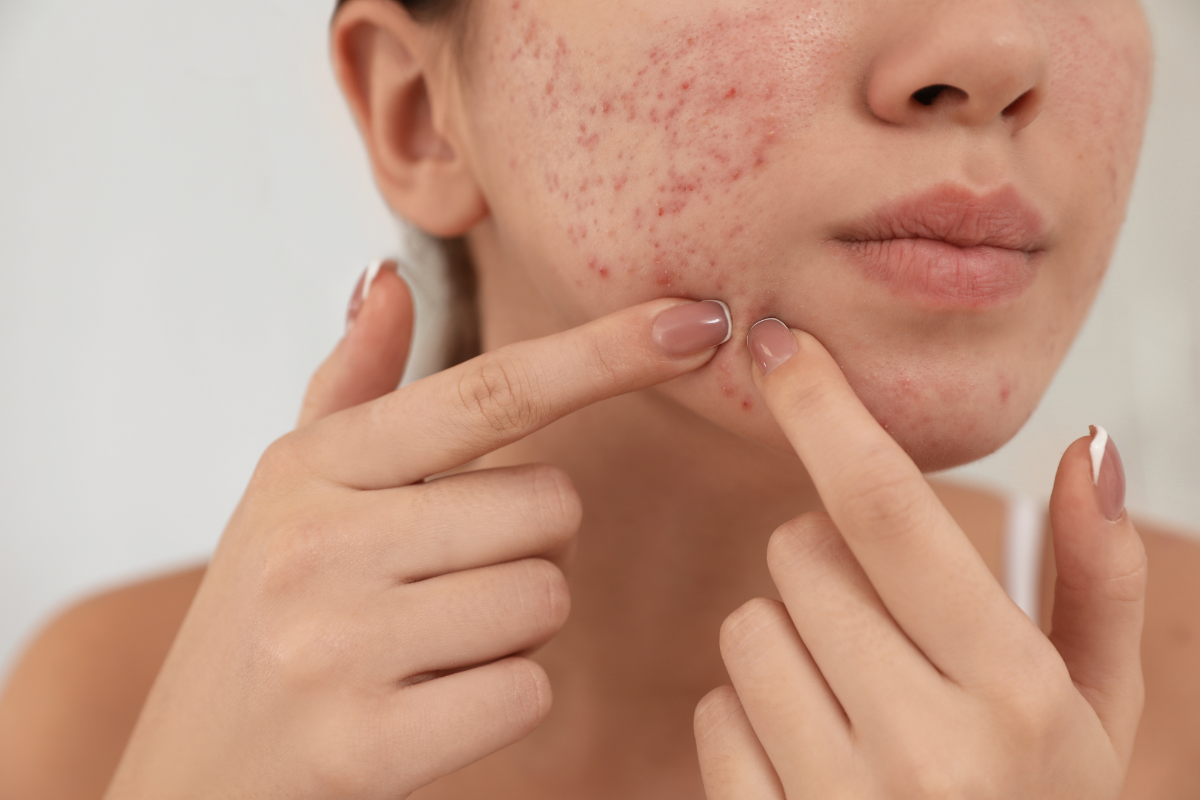Vitamin C & its benefits for the skin

Vitamin C & its benefits for the skin
Vitamin C, or ascorbic acid, is a water-soluble vitamin that our body can neither manufacture nor store. We therefore need to get vitamin C through the diet, but it also occurs in the form of dietary supplements. The fact that vitamin C is one of the nutrients that are good for a healthy immune system is probably not completely unknown to most people. But did you know that vitamin C also has a number of positive effects on your skin? In this article, we will therefore go through the benefits that vitamin C has for the skin, as well as which foods you should eat more of to ensure your intake of the vitamin.
Why is vitamin C so good for the skin?
1. Vitamin C is needed for the formation of collagen in the body
Collagen is a protein that has an important function in various tissues in the body, for example for the strength, stability and elasticity of the skin. In order for us to form collagen, however, we need vitamin C. In the diet, collagen occurs naturally mainly in animal foods. Therefore, it may be especially important for people who do not eat meat to get enough vitamin C, either through the diet or supplements, for optimal collagen formation. However, of course even those who eat meat should have a sufficient intake of vitamin C because, among other things, the vitamin also promotes the absorption of iron in food.
2. Vitamin C is an antioxidant
Pollution that we are exposed to in the environment can reduce the amount of vitamin C in the skin, which can cause oxidative stress*, that is, free radicals are formed and damage the skin. Vitamin C is the most abundant antioxidant in the skin, and is needed to fight free radicals. In order to protect the skin against oxidative stress, it is therefore important to ensure that you have an adequate intake of vitamin C. According to studies, it seems that vitamin C has an extra effective antioxidant potential via application to the skin when it is combined with vitamin E.
*Oxidative stress is a biochemical process that is considered to be one of the causes of aging, as well as a number of different diseases, for example cardiovascular diseases and cancer. Antioxidants are substances that have been shown to prevent oxidative stress.
3. Vitamin C can reduce damage to the skin from the sun's UV rays
It is not only environmental pollution that can cause oxidative stress in the skin. Even the sun's UV rays can damage the skin. UVA light penetrates the skin more deeply than UVB light, and in addition to aging the skin, this can lead to melanoma, i.e. skin cancer. It is above all the UVB rays that cause sunburn. However, we cannot claim that you only need to eat vitamin C, or use skin care that includes it as an ingredient, to protect yourself from the sun. Sunscreen, which captures the UV rays, is very important to use if you are going to be in the sun. Vitamin C cannot capture the UV rays, but only neutralizes the free radicals. However, the neutralizing effect of free radicals has not been seen when applying only sunscreen.
Important to note is that vitamin C above all seems to reduce oxidative stress from UV radiation when it is applied to the skin.
4. Vitamin C can prevent the aging of the skin
As we mentioned earlier, vitamin C is an important component for the normal production of collagen. As we get older, the amount of collagen and elastin in the skin decreases, but the sun can also break down the collagen in the skin. There are studies whose results have shown that vitamin C from the diet is linked to a general better appearance of the skin, as well as a noticeable reduction in wrinkles. When vitamin C (3-10% concentration) is used externally for at least 12 weeks, it has been shown in some studies to be able to reduce wrinkles and roughness in the skin, as well as stimulate the production of collagen.
5. Vitamin C can counteract dry skin
A connection has been seen between a higher dietary intake of vitamin C and a reduced risk of dry skin. Exactly what this is due to is relatively unclear, but when ascorbic acid was added to cell cultures*, it was seen that it promoted the production of barrier lipids that moisturize and protect the skin from drying out. Dryness of the skin also tends to emphasize fine lines which are due to a lack of moisture or fluid.
*A cell culture is when you grow and maintain cells in a laboratory.
6. Vitamin C can promote wound healing
When you have a wound on the skin, the body is required to produce more collagen, and thus the need for vitamin C increases. You may have heard of scurvy, which is a disease caused by vitamin C deficiency. A symptom that occurs in scurvy is namely impaired wound healing.
Vitamin C may also have a significant role in other processes involved in the healing of wounds. It also helps in the division of skin cells in the top layer of the skin (epidermis), which stimulates the formation of the skin barrier*. If you want to take supplements of
Vitamin C to speed up the healing of a wound, however, this effect seems to be mainly seen in people with a significant deficiency.
*The skin barrier is the outermost layer of the skin that helps preserve moisture in the skin, and protects us from external stresses, such as bacteria and pollution.
7. Vitamin C can reduce inflammation
In studies examining the levels of vitamin C in the blood, lower levels have been seen in people with skin inflammation compared to people with healthy skin. This seems partly due to vitamin C inhibiting a protein that activates several
pro-inflammatory cytokines*. Therefore, the vitamin can help with, for example, acne and rosacea, but also to reduce inflammatory hyperpigmentation in the skin. When the skin is exposed to oxidative stress, it also contributes to inflammation. This is thus yet another reason for vitamin C's positive effect on the aging of the skin. In addition to this, vitamin C can also reduce the inflammation that occurs with sunburn.
*Cytokines are signal molecules that the immune system produces in e.g. inflammation or other injury or stress.
Which dietary supplement with vitamin C is best for the skin?
Collagen peptides with extra added vitamin C and other skin-boosting ingredients is one of the best nutritional supplements available for elastic and youthful skin.
Which foods contain vitamin C?
As we mentioned earlier, vitamin C is a water-soluble vitamin and is therefore not stored in the body. Adults should get at least 75 mg of vitamin C a day. For pregnant and lactating women, the recommended daily intake is slightly higher, 85 mg and 100 mg respectively.
Some examples of foods high in vitamin C include:
- Kiwi
- Orange and other citrus fruits
- Pepper
- Broccoli
- Brussels sprouts
- Kale
- Black currants
- Rose hip
- Parsley
Are there risks with taking too much vitamin C?
According to the Swedish Food Agency, there seems to be no indication that intakes above 1000 mg/day would be harmful. However, they report that high doses can cause diarrhea and possibly kidney stones in those who are extra sensitive.
- Tags: Hud/Skin Kollagen/Collagen





